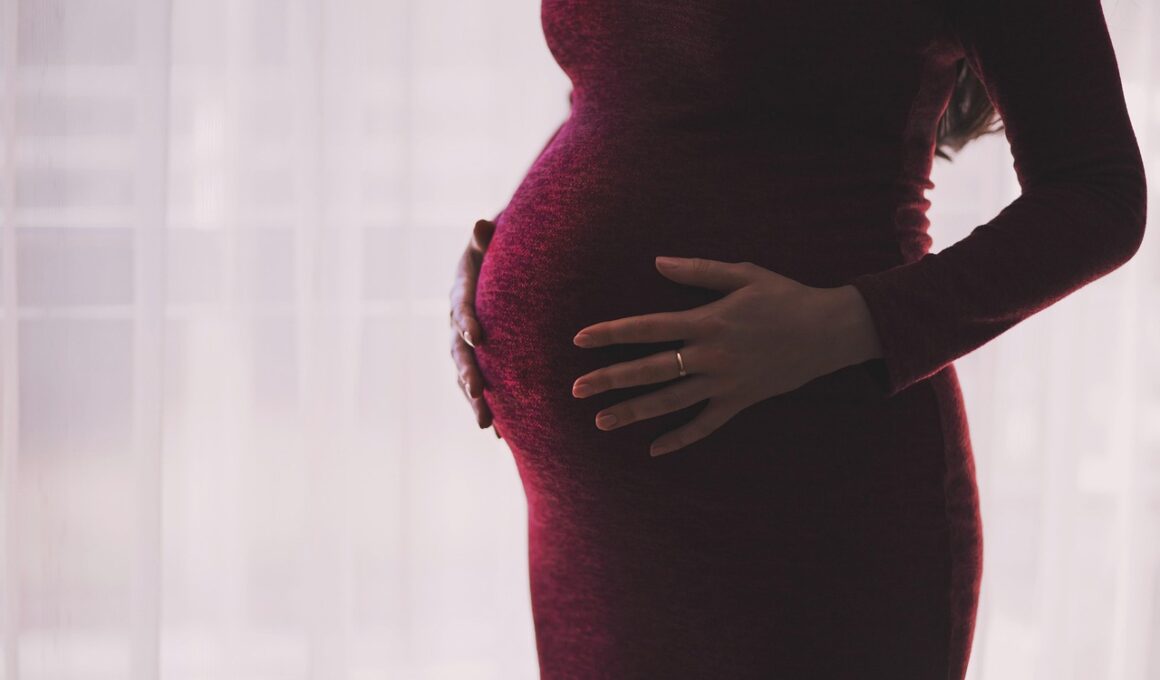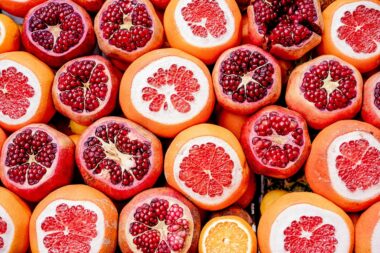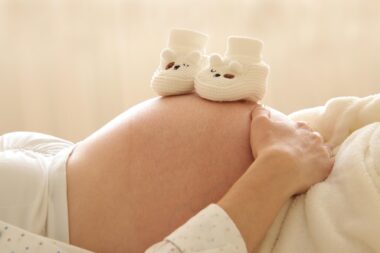Understanding the Impact of Environmental Toxins in Pregnancy
Pregnancy is an incredible period, bringing joy and hope, but it also introduces concerns regarding environmental toxins. Environmental toxins wield the potential to adversely affect the health of both the mother and the developing fetus. These toxins can be found in various sources, including food, water, air, and personal care products. Maintaining awareness of these risks is paramount for expectant mothers. Some common types of environmental toxins include pesticides, heavy metals, and industrial chemicals. Pesticides are frequently used in agriculture, leading to exposure through contaminated produce. Heavy metals such as lead, mercury, and arsenic can enter the body through polluted water or certain fish. Pregnancy becomes an essential time to focus on safe practices and making informed decisions regarding exposure. To effectively mitigate these risks, pregnant women should opt for organic foods when possible, utilize filtered water, and avoid substances known to contain harmful chemicals. Furthermore, ensuring proper ventilation in living spaces can greatly reduce indoor air pollution. With proactive measures, mothers can nurture their health and provide a safer environment for their unborn children.
Importance of Nutritional Choices
Nutritional choices play a significant role in supporting the health of pregnant women and their babies. A balanced and nutritious diet can help enhance the body’s resilience against environmental toxins. Consuming a variety of fruits, vegetables, whole grains, lean proteins, and healthy fats can provide essential nutrients that support detoxification processes. Certain foods, such as cruciferous vegetables like broccoli and kale, can aid in liver function, facilitating the elimination of toxins. Hydration is equally critical during pregnancy, as water helps flush out waste and toxins. Pregnant women should aim to drink plenty of filtered water throughout the day. Limiting processed foods, which may contain additives and preservatives, is essential for minimizing exposure to harmful substances. Additionally, choosing high-quality protein sources and healthy fats can promote overall wellness. Superfoods, like berries and walnuts, can contribute vital antioxidants to combat oxidative stress. Moreover, women should educate themselves about food sources and cooking methods that prioritize minimal toxin exposure. Cultivating healthy dietary habits can empower women to safeguard both their health and the well-being of their developing babies.
Addressing household exposure is another critical aspect for maintaining a toxin-free environment. Many common household products contain harmful chemicals that can pose risks during pregnancy. Cleaning products, air fresheners, and personal care items can release volatile organic compounds (VOCs) and other harmful substances into the air. Pregnant women can take proactive steps to reduce exposure by choosing eco-friendly cleaning alternatives and using essential oils for fragrance. Additionally, fragrance-free and hypoallergenic products can minimize skin irritation and chemical exposure. Staying informed about product ingredients is vital; women should scrutinize labels and opt for natural or certified organic items. Furthermore, pregnant women should ensure adequate ventilation when using any chemical products indoors. Avoiding smoking and exposure to secondhand smoke contributes significantly to a healthier pregnancy. Creating a clean and conscious living space entails evaluating the quality of indoor air and removing potential toxins. Regularly replacing air filters and using air purifiers can improve air quality. By adopting mindful consumer habits, mothers can foster a cleaner environment that supports their health and that of their child.
While environmental toxins are a serious concern, stress management is equally important during pregnancy. High-stress levels can exacerbate the effects of toxins on the body, potentially impacting fetal growth and development. Implementing stress-reduction techniques can improve mental and physical health, promoting a more conducive environment for the baby. Activities such as prenatal yoga, meditation, and deep-breathing exercises can effectively alleviate stress. These practices encourage relaxation and foster greater awareness of bodily changes during pregnancy. Additionally, support from family and friends can create a nurturing atmosphere. Expectant mothers should prioritize self-care and make time for relaxation, focusing on their overall well-being. Practicing mindfulness can aid in recognizing and addressing stressors, ultimately leading to healthier coping mechanisms. Counseling or joining a support group can further enhance emotional well-being. Alongside physical health considerations, nurturing mental health is crucial for fostering a healthy pregnancy journey. Integrating self-care routines promotes resilience and equips women to face challenges that may arise. The synergy between physical, emotional, and environmental health ultimately shapes a positive pregnancy experience.
Postpartum, the importance of detoxifying continues, as environmental exposure remains a concern. New mothers must be conscious of their surroundings and the products they use while caring for their newborns. Many household items can still emit harmful chemicals, making choosing safe options paramount. Opting for eco-friendly cleaning supplies and maintaining a non-toxic home environment can protect both mother and child. Natural alternatives to chemical-laden products are widely available, facilitating a smoother transition into motherhood without compromising safety. Moreover, breastfeeding mothers should be vigilant about their diets, as what they consume can affect their milk quality. Consuming organic and nutrient-rich foods remains imperative for supporting overall health while breastfeeding. Staying well-hydrated also contributes significantly to healthy milk production. Mothers should continually assess their home for potential toxin sources, including exposure from painting, renovations, or poorly ventilated spaces. Creating a toxin-free environment helps promote healthy adjustment for both mother and child. Educating oneself remains crucial as new research continues to emerge in the field of toxins and health. Proactive measures can lead to long-lasting wellness for the entire family.
In conclusion, expecting mothers must prioritize awareness and proactive measures to mitigate exposure to environmental toxins. Knowledge equips them to make informed decisions that support their health and the well-being of their babies. Each step taken, from improved dietary choices to fostering a safe living environment, contributes to a healthier pregnancy experience. Understanding the sources of toxins empowers women to safeguard their health effectively, minimizing potential risks during this critical phase. Creating a holistic approach can ensure that both mother and child thrive. Regularly consulting healthcare professionals can further enhance understanding and address specific concerns regarding toxins. Women should communicate openly about any fears or uncertainties they may have, as proper guidance can alleviate apprehensions. Holistic approaches, encompassing nutrition, emotional health, and detoxification practices, lay the groundwork for a positive and safe pregnancy journey. Every effort made assists in providing a nurturing environment for a healthy start to a new life. As more information becomes available about toxins and their effects, continuous education will remain pivotal for supporting healthy pregnancies well into the future.
To deepen understanding, exploring research and expert guidelines can provide clarity on this topic. Continuous learning and adaptation can empower mothers to navigate pregnancy confidently. Tuning into one’s body can promote a more intuitive approach to nutrition and environmental safety. Each decision reflects a commitment to prioritize health and well-being for oneself and the baby. By embracing change and adopting healthier practices, mothers can cultivate a life filled with vitality, fostering positive effects on long-term health. Seeking support and building communities of like-minded individuals can also enhance progress, allowing mothers to share experiences and information. Collaboration can lead to effective solutions and innovations that address challenges regarding exposure to toxins. Engaging in educational activities, like workshops focusing on safe environmental practices, can also prove valuable. The journey of pregnancy is unique, and embracing safety measures that resonate personally can enhance the experience. This multi-faceted approach involving conscious choices, support networks, and continual education can foster a nurturing environment. Throughout pregnancy, mothers can thrive and pave the way for a healthy future within a safe surrounding, making lasting impacts on generations to come.
Empowering women to take control of their pregnancies is essential. By becoming well-informed about environmental toxins and their implications, mothers can prioritize both their health and the health of their babies. A collaborative approach fosters a sense of unity among mothers, encouraging them to share valuable insights and experiences that can benefit many. Crafting a supportive community enhances collaboration on tackling common challenges related to detox and cleansing during pregnancy. Comprehensive knowledge about sources of toxins can motivate proactive strategies for reducing exposure. This information equips pregnant women with essential tools to make healthier choices as they nurture their growing families. Additionally, taking small, manageable steps towards creating a safe environment can yield significant benefits. The impact of an intentional, nurturing atmosphere transcends pregnancy, influencing life beyond the baby’s delivery. Those initial steps lead towards establishing health-centered family traditions that emphasize wellness and sustainability. Exploring resources such as blogs, books, and community workshops can further expand knowledge regarding detoxification during pregnancy. With dedication and resilience, mothers can create an enduring legacy of health and well-being for future generations.





